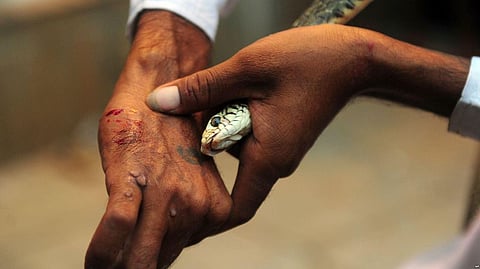Production of the anti-venom takes roughly two years, the in-Pharma Technologist website reported. It said the pharmaceutical company cited manufacturing costs, and competition from cheaper but less effective treatments, in its decision to stop producing Fav-Afrique.
MSF has estimated that the anti-venom costs a patient $250 to $500 for treatment.
Sanofi Pasteur announced in January that it had agreed to divest its anti-venom immunoglobulin range, which includes Fav-Afrique, to the U.K.-based firm MicroPharm.
"We hope this resolution will trigger some actions to better regulate the market … and to prioritize and subsidize" anti-venom production and distribution, Potet said.
"Now we need to make sure this resolution is translated into a concrete, fully funded action plan," he added.


